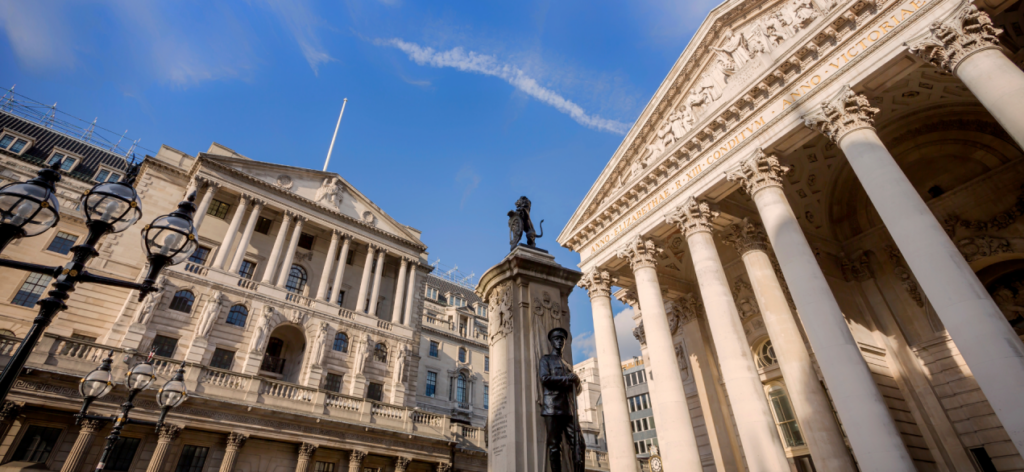Harvey John
Unit 2 Ferry Wharf
Hove Enterprise Centre
Basin Road North
Portslade, East Sussex
BN41 1BD
Part Three of a new weekly blog on the rise of cryptocurrencies
Bitcoin has been making headlines with record valuations in December 2020 and the future is looking bright for the currency. In 2020, we have seen the currency being accepted into the mainstream with respected investors, hedge funds and financial institutions all getting involved.
It hasn’t always been like this. In its early days, bitcoin was often dismissed as the chosen currency for the black market. In the third of my series of cryptocurrency blogs, I look back at the ways the currency was used to facilitate criminal activities – and how it survived to gain respectability.
The dark side of bitcoin
Peace and stability is the enemy of innovation. When everything is calm and sedate, things just tick along nicely but little changes.
If a war breaks out or a pandemic sweeps the world, then a surge of ideas and scientific breakthroughs are suddenly unleashed. Necessity, after all, is the mother of invention.
During World War II, there were huge advances in technologies such as radar, pressured cabins, guided missiles, synthetic rubber – and even helicopters. Covid-19 prompted a global sprint to develop a vaccine and, with the Oxford solution, it is estimated that ten years’ vaccine work was achieved in ten months.
So how is innovation embraced and developed in safer times? The answer is often through the ingenuity and risk-taking of the criminal classes!
Throughout the ages, possibly the most effective driver for new technologies has been the demand to see naughty images or films. Pornography is thought to advanced the development of early print presses, accelerated the growth of the internet, almost solely revolutionised video and photographic technology (from polaroids to VHS) as well as 3-D and AI, and prompted the first wide-scale use of online payments.
So it was no surprise to hear that the most enthusiastic early adopters of cryptocurrencies such as Bitcoin were money launderers, scammers and drug dealers.
Travelling along the Silk Road
If you want to make a discreet, unlawful transaction, you can’t really beat used (and virtually untraceable) banknotes. However, cash has its limitations – perfect for a cheeky deal in a pub or back alley, fine for dropping off a bag of money at a service station, or, if you are in the movies, a briefcase full of $100 bills or £50 notes always does the trick. But on a global scale or online, a quick cash deal is highly impractical.
Transferring funds has always been a problem. The established banking system (aside from in secretive tax havens) is far too dangerous for large-scale criminal activity due to the lack of privacy.
And then, along came Bitcoin, a currency that offers almost total anonymity. Or more accurately it is pseudonymous, in the sense that the components of Bitcoin, such as addresses, private and public keys, and transactions, are all read in text strings that don’t directly link to anyone’s identity. Game on for the money launderers and online crooks.
According to Charles Delingpole, the founder of ComplyAdvantage (a company that monitors transactions): “The structural fundamentals of cryptocurrencies make it very easy to facilitate crime. With legitimate flows masking illegal flows, it is very easy for criminals to launder money through cryptocurrencies.”
Writing in sciencemag.org in 2016, John Bohannon wrote, – As recently as three years ago, it seemed that anyone could buy or sell anything with bitcoin and never be tracked, let alone busted if they broke the law. ‘It’s anonymous,’ was how one commenter put it in Bitcoin’s forums in June 2013. ‘The FBI does not have a prayer of a chance of finding out who is who.’
As chancers and con men dived into Bitcoin, one ambitious website began to build a dedicated following, amassing huge profits. Launched in 2011, the dark web’s flag bearer, Silk Road was an online black market where buyers and sellers of illegal or unethical items could transact without revealing their identities. The shady traders were protected by the anonymity of the bitcoin currency and by an open-source privacy network (Tor), which had initially been developed for censoring sensitive information for the US Navy.
The criminals were a step ahead of the authorities and went about their activities with smug confidence. But the forum commentator who declared that the FBI didn’t have a prayer, had underestimated the ingenuity of the security services.
In 2013, Silk Road founder Ross Ulbricht (known on the site as Dread Pirate Roberts) was tracked down and arrested. He was convicted of money laundering, computer fraud and drug offences, earning himself a double life sentence plus 40 years without a chance for parole. He will spend the rest of his life in jail. Or will be released in January, as stories abound that Donald Trump is considering him for a pardon before time runs out on the presidency!
The tables turned
It turned out that bitcoin was not as safe a haven as many anticipated. The busting of Silk Road turned the tables on the dark web in a spectacular fashion. Not only did the FBI shut down the site and seize more than 144,000 bitcoins (then valued at $122 million), the bureau was able to access a huge database of vital information.
Sarah Meiklejohn, a computer scientist at University College London notes that the beauty of Bitcoin, from a detective’s point of view, is that the blockchain records all: “If you catch a dealer with drugs and cash on the street, you’ve caught them committing one crime. But if you catch people using something like Silk Road, you’ve uncovered their whole criminal history. It’s like discovering their books.”
Kim Grauer, senior economist for Chainalysis, concurs: “Cryptocurrencies have the reputation for being cross-border and anonymous, and therefore attractive to bad actors across the world. But because transactions involving cryptocurrencies like bitcoin are recorded on a permanent, public, and immutable ledger, cryptocurrencies can offer unprecedented transparency into financial transactions.”
Writer Matthew De Silva emphasises the point: “Laundering money through Bitcoin is a bad idea, not only because it’s illegal, but also because it leaves a permanent trail. Defendants have repeatedly been undone because they’ve relied on cryptocurrency for some part of their nefarious activities. Sometimes, they’ve been arrested years after their alleged crimes.”
“Laundering money through bitcoin is like pulling off a jewelry heist, but leaving a map to your apartment at the scene of the crime. You can shred the map into tiny pieces – by sending bitcoin through multiple wallet addresses, or accounts, to hide your tracks – but with sufficient time and data-crunching power, it’s possible for other people to reassemble the clues.”
You might think that Silk Road would offer a salutary lesson in the risks of misusing cryptocurrencies, but the dark web still persists in trading through Bitcoin. A research project at Oxford University found that, as of April 2017, ‘Approximately one-quarter of all users (25%) and close to one-half of bitcoin transactions (44%) are associated with illegal activity.’
Also in 2017, the New York Times reported that the spread of fentanyl, which is blamed for the opioid crisis in the United States, was made possible by Chinese labs selling the drug online for bitcoin.
A less dramatic picture was painted by the blockchain analytics firm Elliptic in 2019, who, in collaboration with researchers at the Massachusetts Institute of Technology, found that only 2% of Bitcoin transactions in 2019 were deemed illicit.
The nature of criminality means it is hard to find a wholly accurate assessment of how much bitcoin activity is illegal. But most observers see bitcoin coming more into the mainstream, moving further away from the underworld. This is certainly the case for large-scale operations, who are very aware that if they get caught once, the nature of blockchain means previous misdemeanours will also be picked up.
This is why Ryan Selkis, the founder of the cryptocurrency consulting firm Messari, believes the big underground players are becoming less likely to use Bitcoin. Bitcoin is a pretty lousy currency to use for cybercrime, he says. Maybe it is good for petty crime, but if you are running a cartel, it is a different story.
When Bitcoin made its first appearance in 2009, it is safe to say the authorities were caught a bit flat-footed. That is most certainly no longer the case. By forensic studying of blockchain, looking for patterns of behaviour, national security services such as the FBI know they can bring down criminal organisations.
Smart criminals are early adopters of new technologies and get out when the authorities start to catch up. Bitcoin is now established and more dangerous for crooks. They will find new ways to make their money.
Few crimes take place without a victim and a law-abiding world would be a safer place for us all. But maybe, just maybe, we should give the criminal classes a grudging appreciative nod to the role they play in embracing and developing new and exciting innovations!
The rise of cryptocurrency – The blogs
1 – The mysterious birth of Bitcoin
2 – Bitcoin – A beginners guide
4. Will the volatility ever end?
5. Can blockchain technology make elections foolproof?
6. Bitcoin and the Elon Musk Effect
Guy Middleton is a Treasury Associate Director at Harvey John.
If you would like to see our company updates and industry insights, follow our LinkedIn page here.
Author

He is able to provide support at all levels of seniority, from graduates with treasury exposure to seasoned Group Treasurers, in both the permanent and interim markets, and has established a reputation for carefully matching both client and candidate requirements.






